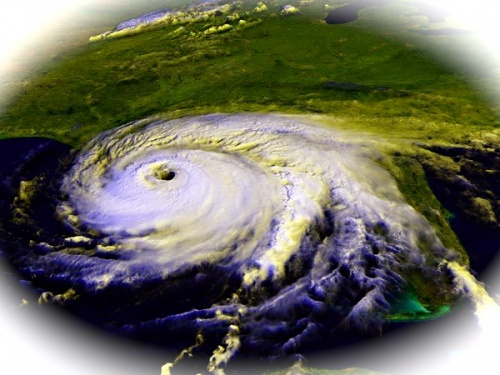
Information system will improve and expand the exchange of weather, climate and water data, which can be used for disaster risk reduction, water management, food security and health purposes. The World Meteorological Organization (WMO) Information System will facilitate access to meteorological observations and products, making it easy to share them with a wide variety of stakeholders.
According to WMO, this will translate into free and more efficient climate services for various sectors including disaster risk reduction, which relies on this type of data for many of its operations. “The WMO Information System is the pillar of our strategy for managing and moving weather, climate and water information in the 21st century,” according to WMO Secretary-General Michel Jarraud. “It will reduce the costs of information exchange incurred by national meteorological and hydrological services and maximize exploitation of advances in communications technology.” See Film Report – “WMO Red Hot Global Record Temperatures” -
diplomaticallyincorrect.org/films/movie/red-hotglobal-record-temperatures/24139
The system will “allow users outside the meteorological community to have free access to this information for the first time.” The system builds on the Global Telecommunication System of WMO’s World Weather Watch, which has been the backbone of meteorological information exchange for the past 40 years and is used for daily weather observations and forecasts, tropical cyclone warnings and tsunami alerts, among other applications. See Film Report: -“Extreme Weather – Floods & Droughts”-
diplomaticallyincorrect.org/films/movie/extreme-weatherfloods-droughts/24068
The WMO Information System, or WIS, connects and integrates information from three types of data centres:
• National Centres collect and distribute data on a national basis. They generate quality controlled analysis and forecast products, and services, including archiving national climate information. The National Meteorological or Hydrological Service coordinate or authorize the use of the WIS by national users.
• Data Collection or Production Centres are similar to National Centres but focus on thematic, regional or global collection and/or production of sets of data, forecast products, processed or value-added information, and/or for providing archiving services.
• Global Information System Centres connect to each other through a high speed private network. They rapidly share information meant for routine global dissemination that they collect from National Centres and Data Collection or Production Centres in their area of responsibility . They also serve as distribution centres into their areas of responsibilities.
Global Information System Centres provide entry points, through unified portals and comprehensive metadata catalogues, for any request for data exchanged within the WIS. They also provide the connection to other information systems such as the Global Earth Observation System of Systems.
Also Read: “More Floods-Climate Change” -
diplomaticallyincorrect.org/films/blog_post/more-floods-climate-change-by-ambassador-mo/3842
WMO’s governing World Meteorological Congress has approved several Global Information System Centres which meet the required standards. Three of these, Beijing, China; Tokyo, Japan, and Offenbach, Germany, have been running in pre-operational mode since the middle of 2011 and will be officially operational from the end of January 2012. Others will shortly become operational.
WIS provides three fundamental types of services (as agreed by Congress):
1. Routine collection and dissemination service for time-critical and operation-critical data and products: This service is based on real-time “push” mechanism including multicast and broadcast; it is implemented essentially through dedicated telecommunication means providing a guaranteed quality of service. This includes a dedicated service for the rapid international exchange of warnings and related messages.
2. Data Discovery, Access and Retrieval service: This service is based on request/reply “pull” mechanism with relevant data management functions; it is implemented essentially through the internet.
3. Timely delivery service for data and products: This service is based on delayed mode “push” mechanism; it is implemented through a combination of dedicated telecommunication means and of public data-communication networks, especially the internet.
Link to WIS -
www.wmo.int/pages/prog/www/WIS/centres_en.html#GISC
Ambassador Muhamed Sacirbey - FOLLOW mo @MuhamedSacirbey
Facebook-Become a Fan at “Diplomatically Incorrect”
Twitter – Follow us at DiplomaticallyX

